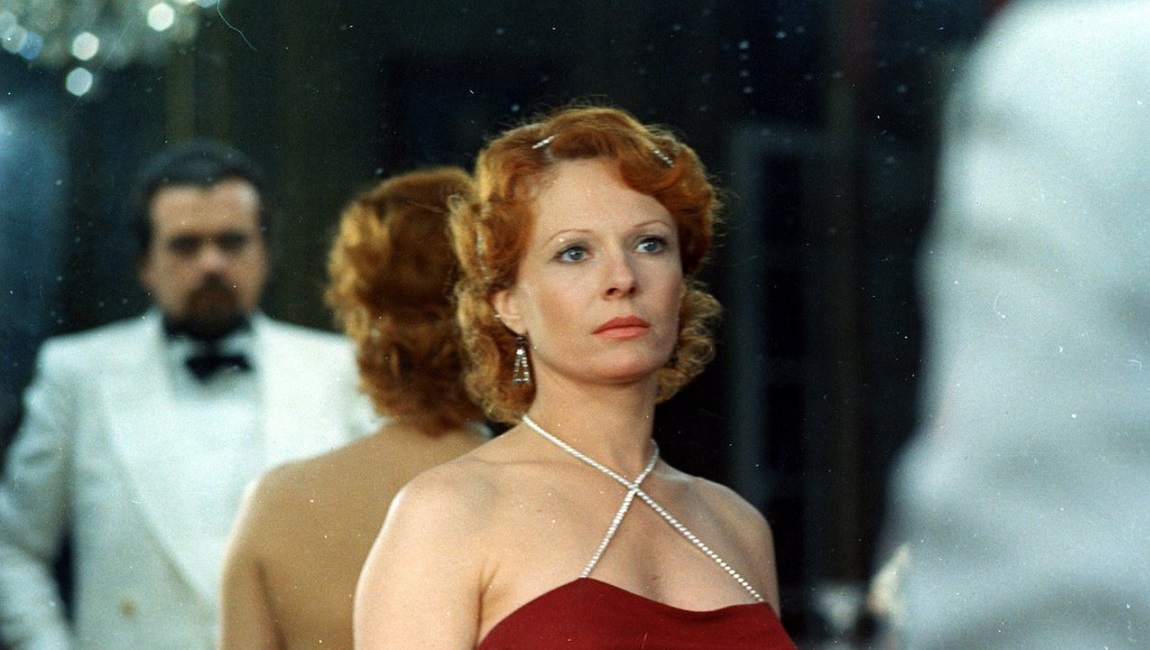The white-hot winning streak that Clint Eastwood was on during the mid-’90s constitutes a seldom touched — at least by his own contemporary standards — run of canonical classics (Unforgiven and The Bridges of Madison County) and auteurist favorites (Black Hunter, White Heart, and A Perfect World) in an all-encompassing return to form that put him back in good graces of the critical establishment after a shaky previous decade (Bird notwithstanding) and re-established him as one of Hollywood’s more reliable talents behind and in front of the camera. But, in semi-classic Clint fashion, right when he was starting to get his mojo back, he went ahead and tarnished whatever goodwill he had built back up again: his following three star vehicles, all adaptations of what are essentially paperback airport thrillers, constitute what many perceive as the nadir of Eastwood’s filmography, staring with Absolute Power, followed by True Crime, and limply finishing things off with Blood Work. A transitional period of his career — Mystic River came out a year after Blood Work and got things back on course — this six-year span saw the maestro awkwardly straddling the line between entering middle age gracefully and still acting like nothing much had really changed since the mid-’70s, a regression and small push forward from what audiences had come to expect and would expect from a contemporaneous Clint picture.
When assessing this largely cumbersome era, one should also give a cursory mention to Midnight in the Garden of Good and Evil, released the same year as Power and likewise based on a popular bestseller — but it remains an outlier within this body of work, as it was conceived of and marketed as a prestige product compared to the termite aesthetics of this aforementioned loose trilogy. It was material that clearly went over Clint’s head — it’s vaguely about such nebulous themes like “collective performativity,” according to its staunchest defenders — and the less said about it and leading man Kevin Spacey playing a closeted murderer (some serious method casting there), the better. To be fair, though, that could easily apply to any and all mediocre features mentioned in this essay.
Absolute Power’s pre-production process, chronicled at length in screenwriter William Goldman’s Which Lie Did I Tell?: More Adventures in the Screen Trade, was, like many of Clint’s pictures in general, an exercise in cutting back. Based on a patently ludicrous David Baldacci legal thriller that has the President of the United States convicted and sentenced to the electric chair by the final few pages, the novel was an ensemble piece that was being adapted into a feature that, at the time, couldn’t conceivably drum up a budget big enough for that many stars. So instead of being faithful, Goldman (with some minor input from a young Tony Gilroy) leaned into star-power overdrive: the central character, professional burglar Luther Whitney — who just so happens to stumble onto the Secret Service killing the President’s mistress — was no longer killed off halfway through, and instead now took on the role of several other bit players who solve the case after his untimely demise. This was all at the suggestion of Eastwood himself, who read the original draft and probably scoffed at the idea of him getting snuffed out before the climax; for a man who repeatedly deconstructs his own screen image, he sure does love does the occasional stunt session.
Anyhow, the end results produced by this unholy marriage of mix-and-matched ideas involving the reworked source material gave us a lackadaisically paced “thriller” (air quotes are required given how laboriously this thing moves) that many have tried to retroactively claim is a scathing indictment of the Clinton administration from one of Hollywood’s staunchest libertarians — even though this was released nearly a year before the Lewinsky scandal broke and even earlier than Slick Willie’s impeachment. There’s one impressive sequence, though it comes early and nothing else ever really matches it: Luther bears witness to cuck Commander-in-Chief Alan Richmond (Gene Hackman) murdering a prostitute through a one-way mirror, the only real cinematic moment in a film that largely consists of lengthy conversations and comically awful disguises. As it stands, Absolute Power is less of a full-on blemish in Eastwood’s filmography, and more of a tedious curiosity that was practically designed to forever haunt cable television.
Besides, True Crime far better fits the description of an out-right embarrassment than anything else Clint pumped out in the ’90s; the fact that this placed relatively high — hell, the fact that this even placed at all — on Cahiers du Cinéma’s Top Ten of 1999 forever proves the mag’s questionable taste. Adapted from one of Andrew Klavan’s more ridiculous novels (you can now watch him on YouTube decry video games for being “too woke”) to an almost insanely loyal degree, the film follows fallen-from-grace reporter Steve Everett — a recovering alcoholic who casually happens to fuck every woman at the Oakland paper he’s now working at — as he races against the clock to prove that convicted murderer Frank Beechum (a stoic Isaiah Washington) is actually an innocent man. What makes Everett such a crack reporter (he’s got, according to him, a good “nose” for this sort of thing) is that he, unlike the schmucks at the paper he works at, uses such impressive journalistic techniques as common sense and natural intuition to come to his conclusions. The “clock” in question (the only thing that provides any real stakes or instills even the most basic feeling of urgency) is that this all happens on Beechum’s last day before his execution, where Everett will naturally be able to solve a case countless others have never been able to piece together in the span of 24 hours; this really is the type of flick where Clint walks into a library to find evidence, picks up the first book he sees, flips to a random page, and what he’s looking for is miraculously staring right back at him.
Which is to say nearly everything about True Crime is completely unbelievable, right down to Everett as a character: he’s clearly meant to be played by someone half of Eastwood’s age, making his horndog antics comical instead of self-destructive; there could have been a deprecating angle to the casting, but one never emerges. He’s meant to function as a weird semi-double for Beechum, with his wild capers serving as a counterbalance to the very serious — and very frequent — tonal switch-ups whenever the film cuts to this wrongly imprisoned lost soul, ones that feel like an afterthought amongst a series of cornball interludes — including a homeless man who begs for “pussy on toast” twice — and a lot of James Woods’ Snickers-eating action. The plotting is equally as implausible — and much like Absolute Power, equally as stagnant — building to a racist dog whistle of an ending that suggests that crime happens in places you’d expect it to be (i.e. Black neighborhoods) before Everett drunkenly speeds to the governor’s mansion to save Beechum’s life with mere seconds to spare. Unsurprisingly, True Crime was a box-office bomb that was unable to make back even half of its insane $55 million dollar budget — where did it all go to, the catering? — and remains, to this day, a title reserved for only the most ardent of Clint completists.
Perhaps it was due to True Crime’s weak performance with critics and audiences, or maybe it was just an excuse to dick around with some old friends; either way, Space Cowboys came next, which saw Eastwood take a step back from serving as the prime catalyst for his film’s dramatic thrust and entrusted that duty to a strong supporting cast of industry veterans and less established talent. But then, once again, Clint returns to his short-lived flop era well with Blood Work, the director’s last feature before entering into an Academy Award-vying portion of his career defined by reconfiguring his usual one-take impulses into presentable Oscar bait — and, somehow, it worked in his favor, providing him with his second Best Director statue and a renewed interest in whatever lame project he would attach his name to. But back to Blood Work, the most unmemorable of these busts by sheer virtue of it being the third time he was indulging this sort of thing.
Like many of Eastwood’s features, there seem to be two different movies fighting for the spotlight here: one of retired FBI agent Terry McCaleb (Clint himself, naturally) living a humdrum life that consists of medical check-ups with a similarly world-weary practitioner (Anjelica Huston) and begging for favors from old department buddies (Tina Lifford) and one of Terry having to solve a convoluted murder mystery involving Russain hitmen, comic-relief Mexican cops, a wacky next-door neighbor (Jeff Daniels), and a Latina side-piece he will most definitely hook-up with by the end credits. Whenever Blood Work embraces the shape and (non-)rigor of the former, there’s a nice rhythm and lived-in quality many of the scenes take on, with a certain amount of restraint and patience that can be seen within the past decade of Eastwood’s filmography. When it enters into the tiresome realm of the latter, all bets are off: the narrative beats are flimsy, the action is poorly executed, and the entire procedure rings hollow. The film, like the act of dissecting it, is hardly worth the time, so recycled is Clint’s late-’90s mode as it here bleeds into the aughts, and the defining characteristic of the Airport Paperback Trilogy is the general feeling of indifference that Eastwood has brought to his material, where his directorial instincts are on clear auto-pilot while his disposition as an actor remains almost grandiloquent in execution. Across a career of fascinating autocritique and self-reflexivity, particularly as regards his cinematic persona and physicality, this stretch reflects the actor-director at his most out of touch, his on-screen personas here pitched to either lazy types or unintentional comedy. Thankfully, for Clint and for members of the general public, it was a tendency that would only resurface again around the time he made The Mule; the silver lining here, then, is that he was at least able to cap off a particularly unconventional collection of movie misdemeanors with the immortal line: “A heart transplant? You’re gonna need an ass transplant when I’m through with you!”









